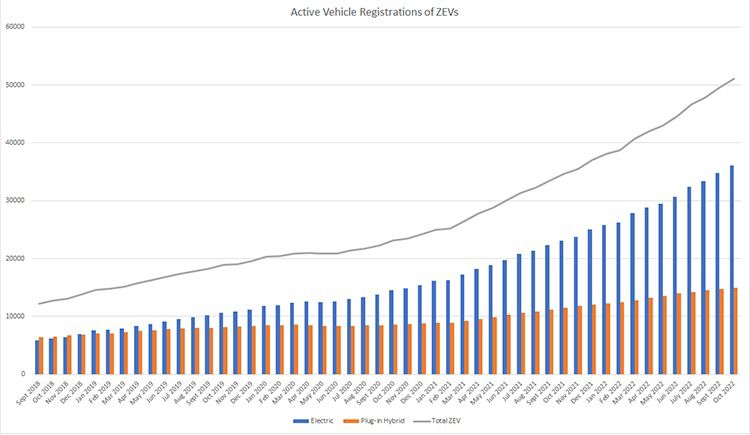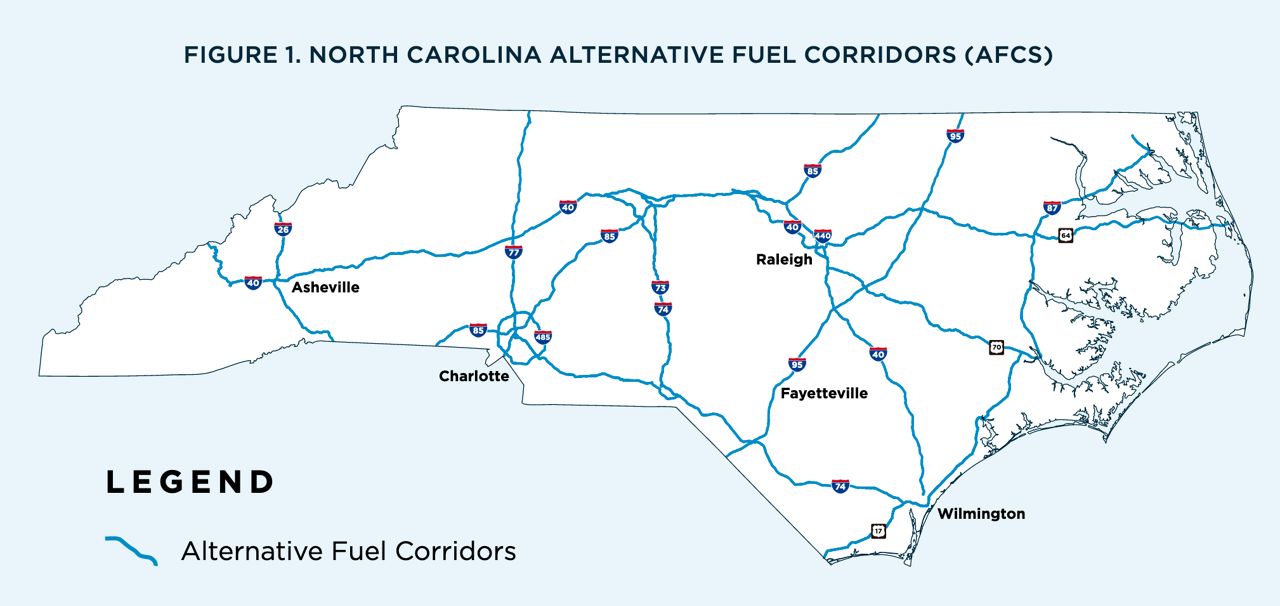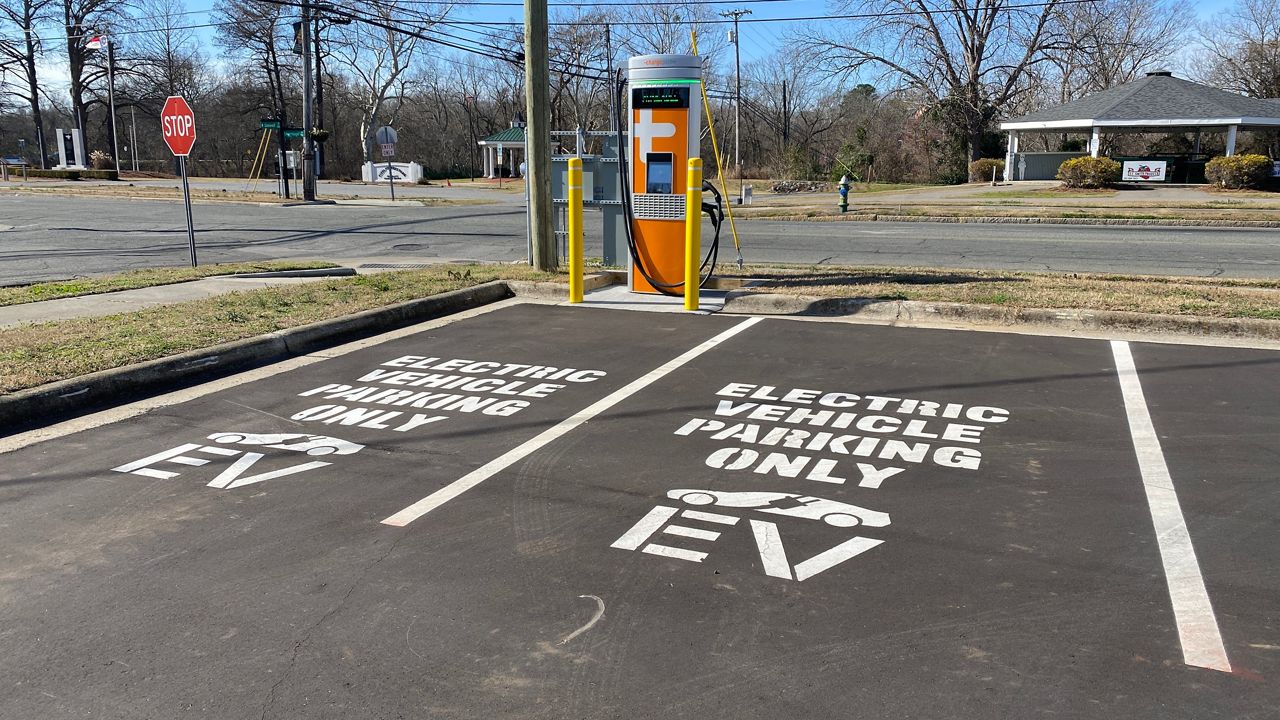The goal is to have 1.25 million electric vehicles registered in North Carolina by 2030.
Gov. Roy Cooper set the EV target last year as part of an executive order, setting a goal to reduce greenhouse gas emissions and have North Carolina carbon neutral to 2005 levels by 2050.
Electric vehicles have grown more popular in recent years as more options have come on the market. Cities and school districts have started bringing electric buses into their fleets.
Electric vehicles are also an economic opportunity for North Carolina. Last year, Vietnamese car maker VinFast said it would open its first electric vehicle manufacturing plant in North America in Chatham County.
Toyota plans to open an EV battery plant near Greensboro by 2025, bringing more than 2,000 jobs.
But many in North Carolina are hesitant to trade in their gas-powered cars and trucks for an electric model, according to a new survey from the North Carolina Department of Transportation.
Researchers from N.C. State University, working with NCDOT, commissioned an opinion poll and held 12 focus groups to figure out how people in the state generally felt about electric vehicles.
More than half of the respondents in the survey, 53%, who said they planned to buy or lease a new car in the next year, said they would be “somewhat” or “very” likely to consider getting an EV. Of the people already driving an EV, 87% said they would probably get another one.
“Among focus group participants, the majority (67%, 74) of participants expressed interest in purchasing or leasing an electric vehicle if the initial purchase price was about the same as a gas-or diesel-powered vehicle,” the report states.
People in the focus group said they had reservations about the purchase price, range and having charging stations available.
Most of the people in the survey who did not already drive an EV thought charging was inconvenient or unavailable where they live, work and shop.
“Responses indicated a relatively low level of awareness about electric vehicles in North Carolina. Just over one in five respondents said that they read or heard ‘a lot’ about EVs, which was about the same percentage as those who said they had only read or heard ‘a little’ about EVs,” according to the report.
The people in the survey most likely to say they were interested in buying an EV were men 18 to 35, people making more than $100,000 a year, people who lived in metropolitan areas, and people with a liberal political identity.
North Carolina’s governor set a goal of having 1.25 million electric vehicles registered in the state by the end of the decade.
As of March 2022, there were about 40,700 EVs and plug-in hybrid vehicles registered in North Carolina, according to the NCDOT. That’s up from about 12,700 in October 2018.

NCDOT data from October 2022 shows the big urban counties have the most EVs, with more than 9,500 in Wake and 6,200 in Mecklenburg.
The state is also working to replace aging school buses with new electric models. Last year the governor’s office announced the state would use $30 million from the Volkswagen Settlement Program to replace 161 old school buses – and 43 of those new buses would be fully electric.
The N.C. Volkswagen Settlement Program is part of a legal $2.8 billion settlement that came out of a case accusing Volkswagen of cheating emissions testing on many of its diesel cars.
Cooper issued a separate executive order to begin converting heavy-duty trucks to electric. The Division of Environmental Quality is looking at California’s new rules to convert medium and heavy-duty trucks to electric.
State environmental officials are hosting meetings with stakeholders January and February as they consider rules that could require all new trucks be electric.
One of the big problems that came up in the NCDOT survey is that people don’t think they will be able to charge a new electric car easily.

While EV drivers in North Carolina are definitely seeing more EV charging stations going in, they are concentrated in metropolitan areas and highway corridors.
The Bipartisan Infrastructure Law set aside $5 billion to install EV charging stations nationwide. North Carolina is using its $109 million of that to install EV stations every 50 miles or less along “alternative fuel corridors,” meaning the state’s interstates and most-traveled highways.
As of July 2022, there were about 1,400 EV chargers in North Carolina. The new program will add hundreds more with faster charging technology along the state’s most traveled routes, according to plans from NCDOT.
The biggest source of funding for road construction and maintenance in North Carolina is from the state gas tax. The tax brings in about $1.8 billion a year for the NCDOT. But as more people switch to electric vehicles, that reliable income stream would start to dry up.
The state legislature is going to have to figure out what to do about the gas tax problem.
The new survey asked about four possible ways to pay for roads: a new fee on miles driven, increasing the gas tax, a sales tax increase, or increasing vehicle registration fees.
According to the report, “60% of focus group participants indicated that they thought people who drive more should pay more to support the state’s transportation system.”
Survey respondents were more open to a new fee for miles driven or increasing the state sales tax.
“Across political affiliations, a new fee on miles driven was most preferred, however, 38% of Democrats indicated support for an increase in the vehicle registration fee versus 14% of Republicans, who overwhelmingly supported a new fee on miles driven (71%),” the report states.
There is a lot of federal money pouring into the states to get more electric vehicles on the road and build up the infrastructure to keep them moving.
Congress put $5 billion into a network of EV charging stations around the country in the Bipartisan Infrastructure Law.
People can also get a $7,500 federal tax credit for buying a new EV and $4,000 for buying a used one. There are also tax credits for companies to invest in EV charging stations.
Separately, there is about $3.5 billion in tax credits for companies to upgrade commercial vehicle from gas or diesel to electric. Another $1 billion will go to fund heavy electric vehicles like buses for schools and local transit systems.
Related article: Charlotte-area startup aims to open electric vehicle fast-charging stations across N.C.



